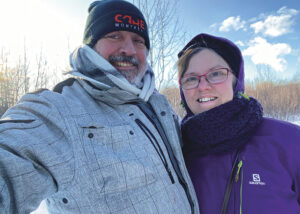As we move into 2022, many of us look back at our experience of church last year with dismay and we look forward with hope. Or do you look back with longing, and forward with dismay? Might we look both back and forward with hope?
The last two years brought us COVID-19 restrictions, a shift to digital platforms and meeting in small groups in places other than our church buildings. Some pandemic pundits say that COVID-19 advanced all pre-existing trends by at least five years, and thus the church trends of declining numbers and budgets, aging congregations and not enough pastors may be upon us sooner than expected.
Two Anabaptist writers on this topic have held my attention during the last two years.
Henk Stenvers, the retired head of the Dutch Mennonite Church and the president-elect of Mennonite World Conference, wrote “Walking on Water” two years ago, making it clear that the European churches are far ahead of Canadians with these trends.
There are fears that the Dutch church will not survive for long, with the loss of 60 percent of its adult members over the last 20 years. He calls the remnant to follow the example of Peter, a fisherman who walked away from fishing, and walk on water with our eyes fixed on Jesus.
He speaks of changing church to become “centred sets,” communities without clear boundaries, gathered around a clear identity and a circle of engaged people. Commitment is not anchored in believing the same things, but in belonging to God and each other. A later booklet in honour of his retirement, entitled Dancing on Water, calls for the church to thrive by dancing with the unknown and the uncertain, letting go of the past and finding new ways to be church.
Conrad Kanagy, an American sociologist and Mennonite minister, recently published a series of books called A Church Dismantled: A Kingdom Restored. He says the signs of decline are everywhere in the American church, which he attributes to the work of God taking apart the institutionalized church as we know it, in order to rebuild the church in a different way that will build God’s kingdom.
Both of these writers talk about letting go of what used to work in a thriving past in order to move into a future church with hope.
I worry that there will be more splintering as we look to the future of the church. Divisions are sometimes an easier way to face decline, dealing instead with differences around doctrine/theology, politics or worship styles.
I believe it is the Spirit who brings us together as church, across all these divides. Yes, we need to let go of many ways of doing church that were institutionalized in the last century. We want to find ways to come together as a movement, experiencing God’s love together through mystery and imagination, dancing on water like Peter. We found creative ways to do so throughout this pandemic. Yes, there is loss, fear and sadness, but there is also faith and hope in what lies ahead for the church.
A Dutch hymn, written by Sytze de Vries, is included in Dancing on Water, speaking to this future: “Dear God, be spoken of / when we are deeply silenced. / Where your Spirit stirs our hearts / the song blossoms in our mouths / in the middle of winter. / We know: summer is coming!
“Not what’s in front of our eyes fills our dreams, / Not what’s at hand shows us the way. / But You, having found our hearts, / You have promised us the future!”
Arli Klassen is privileged to learn from Anabaptist churches around the world. She can be reached at klassenarli@gmail.com.
Read more The Church Here and There columns:
Every tribe and language
Is that not us?
Weak ties matter
What will church look like?
Lament and love









Leave a Reply
You must be logged in to post a comment.